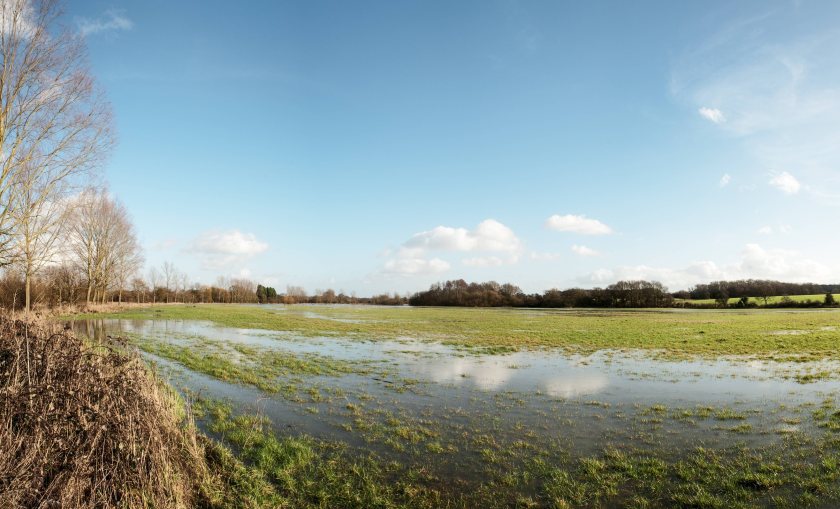Climate impacts slash UK arable incomes by £1 billion, Defra says

Farmers across the UK have been dealt a £1 billion financial blow due to the exceptionally wet winter of 2023/24, according to new figures from Defra.
Despite an overall rise in UK farm income — up from £6.1 billion in 2023 to £7.7 billion in 2024 in current prices — income from the key arable crops has plummeted.
According to Defra’s Total Income from Farming (TIFF) data, published today (5 June), arable income fell by £1.19 billion, driven by a 20% drop in wheat output.
The impact of sustained wet conditions, which scientists have linked to a changing climate, was compounded by falling crop prices.
Tom Lancaster, land, food and farming analyst at the Energy and Climate Intelligence Unit (ECIU), warned that farmers are now counting the costs of climate change.
"This lost income hits the sector just as the same farmers are having to contend with a record breaking warm and dry spring, that is likely to hit this year’s harvest too.”
The breakdown of Defra's TIFF data shows wheat income down by £796 million, barley by £190 million, and oilseed rape by £149 million.
Oats were the only major arable crop to buck the trend in 2023/24, posting a modest £16 million increase.
Mr Lancaster warned that mounting extreme weather events would push more of farming's finances to the brink, particularly against the backdrop of reported government cuts to environmental farming schemes.
"Reports suggest that the spending review next week may reduce the funding available for the government’s new green farming schemes," he said.
"These schemes are a critical investment in the resilience of food production in England, investing in healthier soils, more pollinators and measures to reduce flood risk.
"They are also key to reaching net zero emissions for agriculture, the only sure way to prevent these impacts and their costs escalating in the future.”








